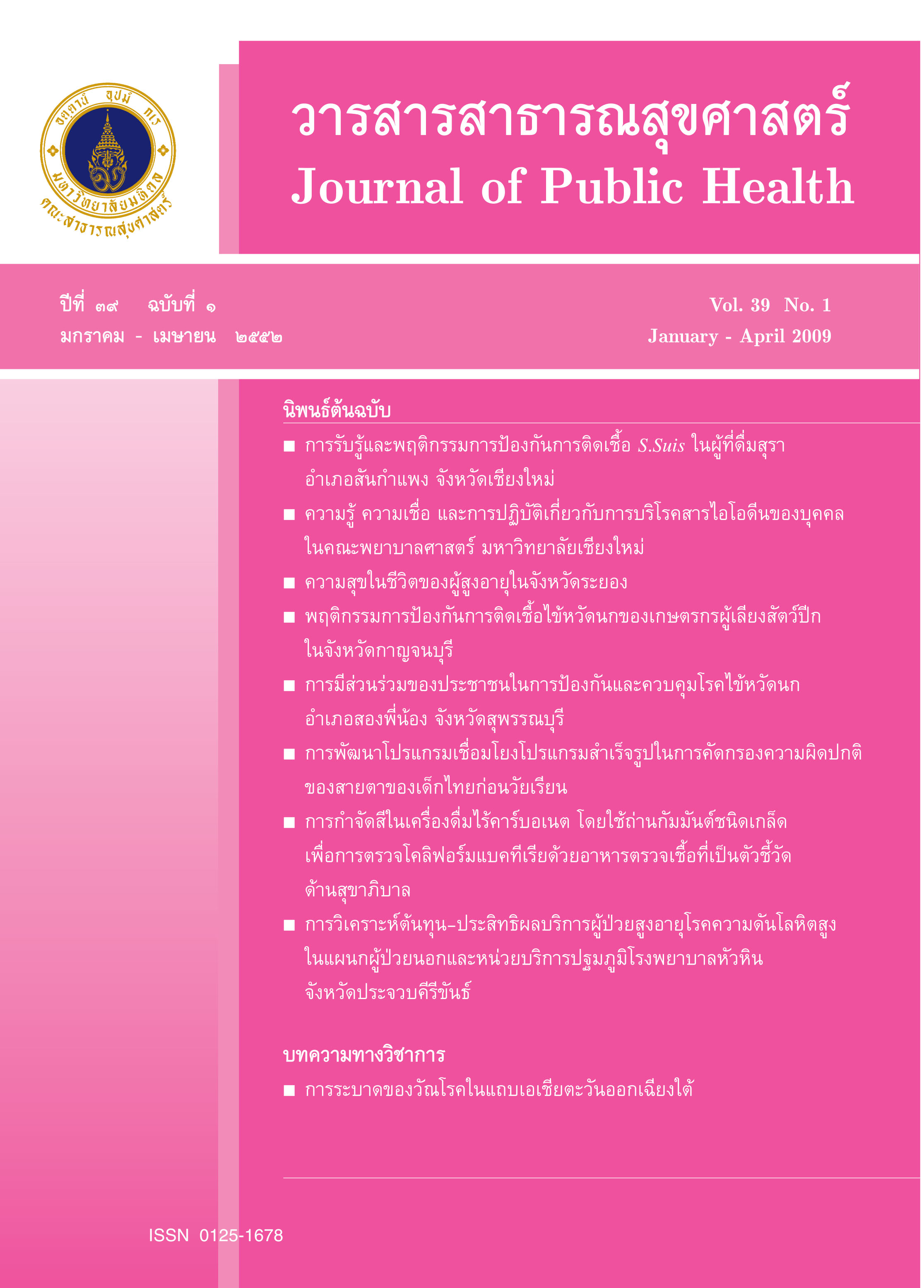การวิเคราะห์ต้นทุน-ประสิทธิผลบริการผู้ป่วยสูงอายุ โรคความดันโลหิตสูง ในแผนกผู้ป่วยนอกและหน่วยบริการปฐมภูมิ โรงพยาบาลหัวหิน จังหวัดประจวบคีรีขันธ์
Keywords:
Cost-Effectiveness, Hypertensive Elderly Service, Outpatient Department, Primary Care Unit, ต้นทุน-ประสิทธิผล, การบริการผู้ป่วยสูงอายุโรคความคันโลหิตสูง, แผนกผู้ป่วยนอก, หน่วยบริการปฐมภูมิAbstract
ABSTRACT
This study aims to analyze the cost-effectiveness of Hypertensive Elderly Service in the OPD and the PCU of Hua Hin Hospital, Prachuap Khiri Khan Province. The 12 weeks cohort study from June to September 2007 was designed to evaluate the outcome of hypertensive elderly services at the two settings. By purposive selection of new hypertensive elderly patients age 60 years and above, the study included 54 patients from the OPD and 36 from the PCU. Both provider and patient perspective of cost analysis were taken into account. The provider costs data was collected from hospital records while the patient costs data was collected by interview and structured questionnaire. The effectiveness was measured as the average reduction in the systolic blood pressure. Both cost and outcome data were analyzed using descriptive and analytical statistics.
The results showed that hypertensive elderly service at PCU was more cost-effective than the OPD of Hua Hin Hospital. The cost-effectiveness ratio was 75.05 Bt/mmHg for the hypertensive elderly service in the OPD and 32.60 Bt/mmHg for the PCU. The total costs of the OPD were 1,223.27 Baht while the total costs of the PCU was only 444.69 Baht. The sensitivity analysis of the service costs indicated that unit costs vary with the time used for the stage of patient screening. The study suggested that it is necessary to strengthening the capability of PCU in providing chronic care service in order to reduce the burden of costs to the hospital and to the patients. Health promotion and prevention programs should be encouraged and implemented to people of all ages though there is costs incurred from health promotion programs but it is worth in the long run in term of quality of life and reduction in the costs of treatment.
Key words: Cost-Effectiveness, Hypertensive Elderly Service, Outpatient Department, Primary Care Unit
Downloads
Issue
Section
License
Creative Commons License CC-BY-ND


